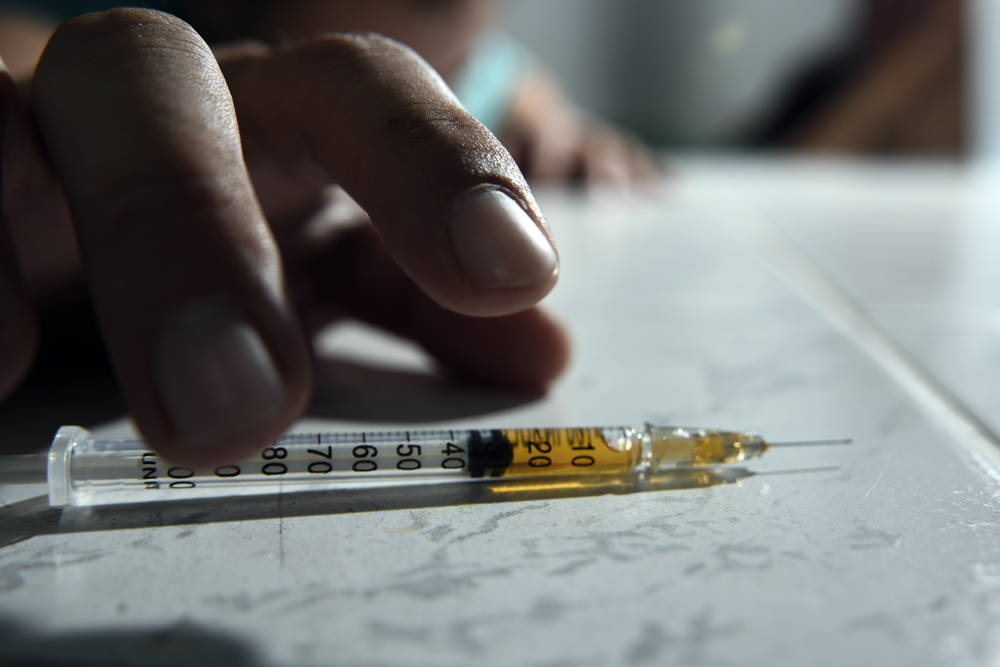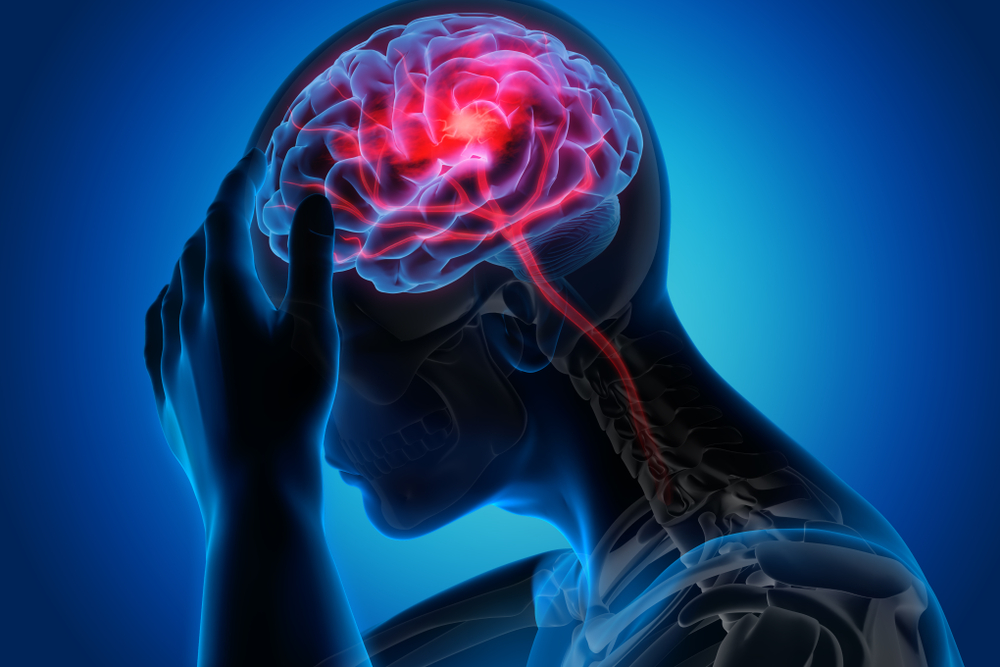How Does Heroin Affect the Brain? 7 Things to Know
How does heroin affect the brain? Heroin, a narcotic obtained from morphine, is a powerfully addictive drug that can drastically alter brain activity. Gaining knowledge of how heroin and the brain interact can be of great use to both psychologists and people in treatment for heroin addiction, helping them to tackle the issue head-on and make sure they receive the right kind of care. Despite the fact that heroin was not truly understood until the late 1900s, medical research has made major advancements since then, increasing our comprehension of how heroin affects the brain. Continue reading to learn more about this drug and its many effects, specifically on the brain.
What is Heroin?
Heroin is a type of opioid created from the alkaloid found in the poppy plant, morphine. While it is derived from a natural source, it is prohibited and highly habit-forming. Depending on the production process, the drug can possess various colors, which are usually either white or brown powder. On the other hand, “black tar heroin” has a black, tar-like, or coal-like consistency.
The Drug Enforcement Agency categorizes heroin as a Schedule I drug, meaning that it has no recognized medical purpose but carries a high risk of abuse. Despite this, people often use this opioid because it can temporarily provide pain relief. However, the same mechanism in the drug that relieves pain is the same one that causes it to have such a destructive effect on the brain.

Signs of Heroin Addiction
The indications and manifestations of heroin addiction can differ from one person to another. The length of misuse and psychological illnesses will likewise impact the characteristics of people. Among the most regular signs and indications of heroin addiction are:
- Small pupils
- Lethargy
- Track marks
- Heaviness in extremities
- Nausea
- Shallow breathing
- Decreased heart rate
- Flushed skin
- Mood swings
- Neglecting personal responsibilities
- Legal trouble
- Loss of interest in once-enjoyed activities
- Using in secret
- Isolation
- Lack of hygiene
How Does Heroin Affect the Brain?
When heroin is introduced to the brain, it attaches itself to opioid receptors and sets them off. This causes the emission of neurotransmitters dopamine and serotonin. Dopamine is connected with joy and reward, while serotonin is linked to serenity and gratification. The blend of these neurotransmitters creates a powerful sense of elation. Regrettably, this is when the brain begins to have difficulties. The more the brain is exposed to synthetic opioids, the less probable it is to generate natural opioids on its own, making it more challenging to resist drugs. Heroin also affects the brain in the following ways:
Requires Heroin to Regulate Neurotransmitters
Heroin stimulates the opioid receptors in the brain, leading to a decrease in the production of natural opioids. This can make the person dependent on the drug in order to relieve pain. When addiction has set in, the individual experiences withdrawal if they stop using the drug. Additionally, the body develops a higher tolerance to the substance, requiring larger doses for the same effects.

Imbalances in the Brain
Continuous use of heroin can modify the physical shape of the brain, leading to the disruption of nerve and hormone systems. This can cause a decrease in sex hormones, and lead to depression, exhaustion, osteoporosis, and muscle loss. Hypogonadism, or an inability of the reproductive organs in men and women, is another consequence of long-term opioid consumption. Neurological imbalance can create genetic problems, illnesses, strokes, dementia, seizures, and Parkinson’s disease. Even though a few hormonal and neurological imbalances can be reversed, some are permanent or may be hard to treat when one has ceased using heroin.
Cognitive Impairment
Prolonged use of the drug leads to an accumulation of toxic proteins in the brain, as well as inflammation and changes similar to those observed in Alzheimer’s patients. These changes can bring about a wide range of effects, such as deterioration of mental capacity, confusion, alterations in personality, lack of self-control, depression, anxiety, paranoia, and poor memory recall.
Decrease in Brain’s White Matter
Prolonged use of heroin has been linked to a decrease in the white matter of the brain. White matter serves to protect nerve fibers and facilitates the transmission of signals swiftly between different parts of the brain. Abuse of heroin can harm the white matter, thus making it hard for the user to be sensible, control their actions, and handle challenging situations. Moreover, heroin consumption can cause changes in the way the brain handles data, which can impede a person’s ability to decide rationally and think clearly.
Changes the Structure of the Brain
Studies have revealed that heroin can have a profound effect on the physical composition of the brain, especially in the regions that monitor emotion and impulses. One alteration that occurs is a reduction in dopamine receptors, which can result in depression, paranoia, and psychosis. These modifications can be permanent and might be a factor in some people’s struggles when attempting to give up heroin.
Prevents Oxygen from Reaching the Brain
When heroin enters the system, it connects to opioid receptors in the brain, blocking off blood vessels that carry oxygen. This can result in hypoxia, which can cause brain damage and death. Moreover, heroin use can affect the normal functioning of the respiratory system, leading to oxygen deprivation and serious health issues, such as coma and death.

Damages the Brain’s Vascular Structure
The brain is made up of a network of arteries and veins that provide blood to different parts of it. Consistent heroin use can cause venous sclerosis, a progressive condition that causes veins to harden. While the issue is generally seen in the legs, it can also happen in other areas of the body. Early signs are mild pain and unease, but it can become more severe in its advanced stages, potentially leading to ulcers, infection, and physical disability. There is no known cure, but medications and therapies can help to reduce discomfort and slow its progression.
Other Dangers of Heroin Abuse and Addiction
Heroin abuse can be hazardous to one’s physical health and can have both short-term and long-term effects. Immediate effects of heroin use are usually nausea, vomiting, itching, dry mouth, among other things. Prolonged heroin use can lead to further health issues such as constricted pupils, abscesses, collapsed veins, bacterial infections, and liver or kidney disease. Dangers of long-term heroin use include:
- Lung complications
- Bacterial infection
- Kidney disease
- Hepatitis B, C, and HIV
- Collapsed veins
- Blood clots
- Seizures
- Liver disease
- Coma
- Overdose
- Death
Can Brain Damage from Heroin Abuse be Reversed?
The impact of heroin use on the brain and the extent to which it can be reversed is largely unknown. Addiction is a long-term condition that cannot be cured, but it can be managed, and there are many individuals who have been successful in defeating their addiction and living a full and healthy life. Although there have been reports of Alzheimer’s-like dementia potentially being reversible, there is not enough evidence to determine if this is accurate.
Treatment for Heroin Addiction and Brain Damage in Louisville, KY
In order to deal with the possible physical and psychological harm that heroin can cause, the most effective approach is to detox and then enter a rehabilitation program. By removing the primary cause of addiction, some of the body’s functions may be restored naturally. Those that remain impaired can be treated with medical interventions.
Attempting to detox from heroin by oneself is not recommended; it is best to get professional medical care, which will likely include managing the use of a drug like buprenorphine. This long-acting partial opioid agonist will fill the gap left by heroin in the brain, making the withdrawal symptoms milder. A doctor will help the person slowly reduce the amount of buprenorphine until the body does not need opioids to maintain normal brain chemistry.
After a person’s physical health is restored, they enter a recovery program. This program provides both individual and group therapy to help them understand their addiction. The goal of the therapy is to alter the person’s responses to cravings, tension, or other triggers so that they learn to handle these feelings in a different way instead of using heroin or other drugs. Once the individual has conquered their heroin addiction, they may experience long-term health problems due to their heroin abuse. A doctor can manage the symptoms of these issues, including dementia, mental health problems like depression or anxiety, memory difficulties, or any other conditions with medications or other treatments.

Help for Heroin Addiction in Louisville
How does heroin affect the brain is a common question we get here at Louisville Recovery Center. In short, heroin affects the brain in many ways, some of which are irreversible. Fortunately, the professionals at Louisville Recovery Center are here to help.
Louisville Recovery provides those who are dealing with drug addiction with care, assistance, and thorough treatment. Treatment is very important for a number of reasons, such as informing people about their chemical dependency, assisting them in withdrawing in a safe manner, getting to the foundational source of the addiction, and teaching them how to construct better coping strategies, stress management, and preventive skills to remain sober. Treatment is offered in various settings and levels of care, based on the individual’s particular recovery requirements and concerns.
If you or someone close to you is looking for assistance with heroin addiction or other substance abuse issues in the Louisville area, reach out to the specialists at Louisville Recovery Center. We have the resources to help you and would love to do so. Contact us today.







